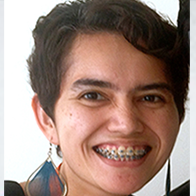During my travels as a student and now an academic, I find it quite challenging describing Malaysia to foreigners not familiar with our country. In addition to convincing people that we no longer live in trees, and yes, there are many different races in Malaysia and no, not all Malaysian girls wear the hijab, I always find the need to justify Sabah and Sarawak.
From my conversations with foreigners over the years, I gathered that their idea of Malaysia is that we are Singapore’s neighbour and Sabah and Sarawak is considered as part of Borneo, rather than collectively a part of this country we call Malaysia. The irony of it all is that Malaysia would not exist without Sabah and Sarawak, as the states geographically located on the peninsula achieved sovereignty as “Persekutuan Tanah Melayu” as opposed to “Malaysia”.
Admittedly, growing up, I had always thought of Sabah and Sarawak as the “other” Malaysia. Then, my idea of East Malaysia was formed only from stories told by my father, who is now a retired army officer, about his postings in the jungles of Sarawak. How he used to have a pet, an alcoholic sun-bear (with a flair for tuak) at the army mass where he was posted and of the different, almost foreign, culture of the people there. There were also stories of dangerous beasts, even more dangerous rivers, hauntings and beheadings, but I think some of it was folktales or him spicing up his storytelling.
Nonetheless, the first time I made friends with someone from the “other Malaysia” was during high school, and the first time I set foot in Sarawak was 3 years ago followed by an attempt to conquer Mount Kinabalu in Sabah a year after that. As a Malaysian, I could only say at 29 years old that I had been to all the states in Malaysia!
Having gone to one of the elite, all-girls boarding schools back then in Seremban, I vividly remember that all of us girls got along regardless of which state in Malaysia we came from. Sure, the Kelantanese and the Sabahans and Sarawakians spoke in their own dialects when speaking to each other (and everyone could speak like a mami Penang!), but overall we were all just girls. We were not divided by class or who our parents were as everyone had the same bed in the dormitories, the same teachers and classrooms, and ate the same food from the dining hall.
Collectively, I think, we also formed our own culture. I remember we had what we called “college handwriting & signature” and until today, I still call vending machines “kebuk tin”. Stereotypically, during cultural performances, we would ask our Sabahan and Sarawakian friends to perform or teach us their traditional dances. But from what I can recollect, that was about the only thing that acknowledged them as “other”. I had the same experience during my undergraduate years in university, and made a few good friends from East Malaysia who are still my friends today. Uni years were only made more complex by the presence of boys, who sometimes preferred the Sabahans and Sarawakians over us peninsular girls.
But everyone, every single one of us, was just happy to belong.
However, just recently, a few days before Hari Malaysia, I made the acquaintance of new friends who happened to be Sabahans. It was purely a coincidence the circumstances where we were put together, but the discussion turned to how inclusive they felt about being in Malaysia. I guessed the recent “unity call” and the branding of 1Malaysia was too obvious to ignore, that somehow even in the peninsula we were divided. How did they feel as East Malaysians?
I was somehow not surprised by their response: that they felt somewhat exclusive. That there were people who would prefer not to be a part of Malaysia, that they had always felt that they were “the other”. What warmed my heart though, was the passion in their eyes about starting a movement to bridge the cultural and ideological gap between us in the peninsula, and those in Sabah and Sarawak. These were young girls, younger than I, and caring about unity in Malaysia based on their life experiences having moved to the big, evil city of Kuala Lumpur.
Malaysia is celebrating her 51st birthday this year, and somehow she is still struggling to find her identity. While we celebrate our diversity, we must also not lose our desire to be as one country. We must not lose our love for her, and somehow it feels like it is more of a struggle today than before. Perhaps adulthood has jaded us and turned us into cynics, but I myself would like to still have hope.
I wish we could have kept the sun-bear as a pet, though.
Selamat Hari Malaysia! – September 16, 2014.
* This is the personal opinion of the writer or publication and does not necessarily represent the views of The Malaysian Insider.


Comments
Please refrain from nicknames or comments of a racist, sexist, personal, vulgar or derogatory nature, or you may risk being blocked from commenting in our website. We encourage commenters to use their real names as their username. As comments are moderated, they may not appear immediately or even on the same day you posted them. We also reserve the right to delete off-topic comments